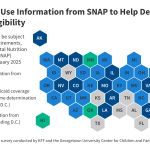
To Knock Down Health-System Hurdles Between You and HIV Prevention, Try These 6 Things
When Matthew Hurley was looking to take PrEP to prevent HIV, the doctor hadn’t heard of the medicine, and when he finally did prescribe PrEP, the bills sent to Hurley were expensive … and wrong. “I decided to write in because the process was really super frustrating.” At one point, Hurley asked, “Am I just…













